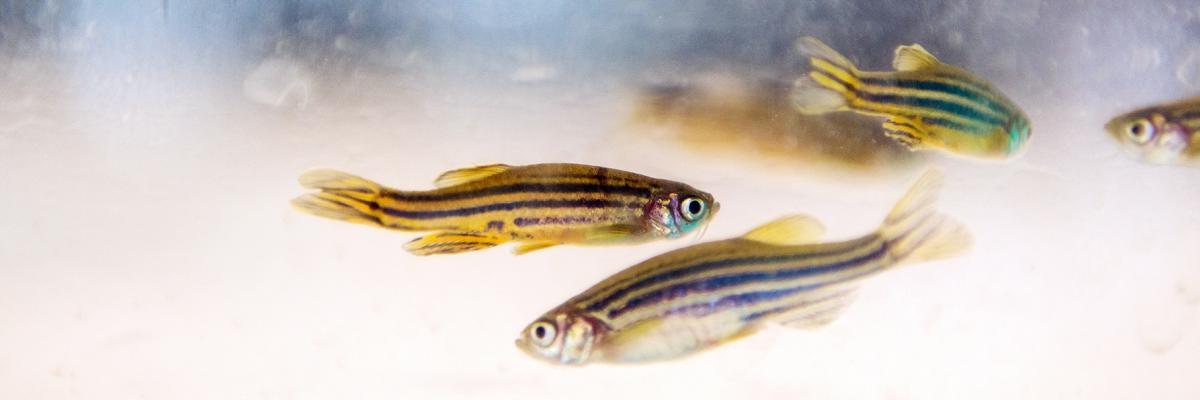Physical enrichment of zebrafish held for research
Assess the effects of physical enrichment in the tank environment of Zebrafish held for research.

The study will aim to validate methods for assessing stress in Zebrafish before comparing tanks of fish with and without environmental enrichment.
Zebrafish (Danio rerio) are rapidly becoming the research animal of choice for animal model development for studies including basic physiological, disease pathogenesis and developmental research. While the fish are used for specific purposes within such projects, very little is done to understand the fish themselves in terms of optimum environment and social interactions.
If fish are stressed during experimental procedures, then results could be flawed. Understanding the possible biases produced by stress is critical when assessing whether the developed fish model design is appropriate.
Key methodology:
- Initial validation of techniques for measuring tank water cortisol levels will be undertaken. Cortisol levels (whole fish and water concentrations) will be measured from fish subject to a number of treatments.
- The effects of stress on lymphocyte telomere length will also be assessed as a measure of stress effect.
- Behavioural observations will also be incorporated to assess stress behaviour.
- The project will then study the effects of a simple device sold as the “Zeb” (hide) for affecting fish behaviour and stress reduction.
Study pathobiology, infectious disease and public health
Get involved in research projects that aim to increase the understanding of disease agents and their effects, leading to the development of better diagnostic tools for their detection.
Projects are available in a broad range of areas, including Tasmanian Devil Facial Tumour disease and aquatic animal health, particularly farmed, ornamental and research fish populations.

Supervisors
Co-supervisors: Dr Susan Hazel | Dr Malcolm France - Consultant in Laboratory Animal Care and Management
Research area: Pathobiology, infectious disease and public health
Recommended honours enrolment: Honours in Animal Science
